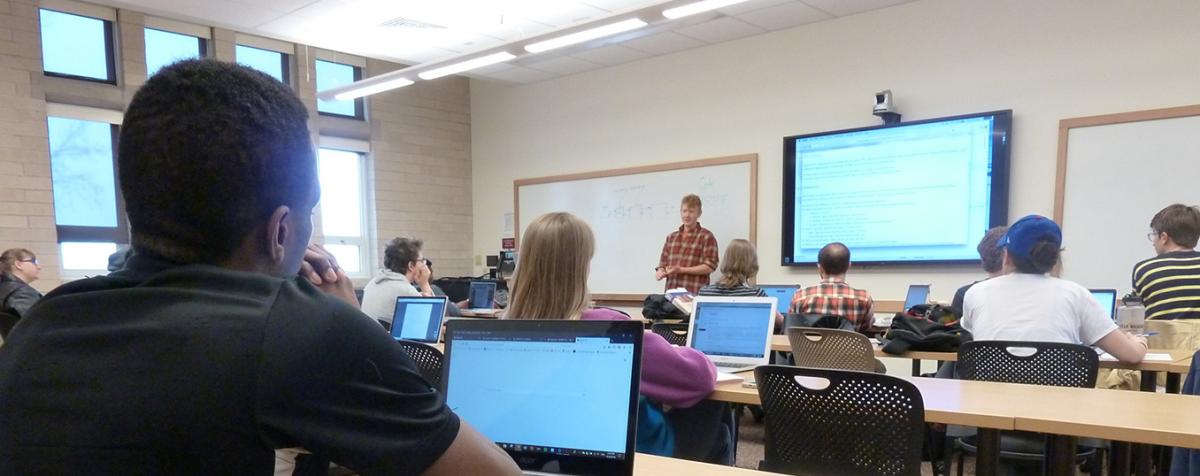From smartphones to cars to medical devices, our interactions with computers define much of modern life. The master of science in computer engineering challenges students who want to improve the world around them through continuous technological advancement. Graduate students expand on their computer architecture foundation by advancing their math and science skills and improving their ability to articulate why their work matters. Courses cover topics like program design, troubleshooting, hardware design systems testing and more. That coursework comes along with a dedicated applied-research ecosystem with labs investigating topics like humane game design, motion capture technology and information security and privacy.
Students have the opportunity to work within Colorado's thriving computer and electrical engineering fields while taking specialized, flexible courses. In addition to a highly specialized computer engineering curriculum, our students have the chance to build a strong knowledge base around general engineering concepts, an exceedingly useful tool in a wide variety of professional environments. Program graduates work as computer software engineers, computer hardware engineers and systems engineers spanning several industries, corporations and countries
Featured Courses
ENCE 3321
Network Design
About this Course
Introduction to network components. Layering of network architecture. Analysis of Local Area Network (LAN) concepts and architecture based on IEEE standards. Design principles including switching and multiplexing techniques, physical link, signal propagation, synchronization, framing and error control. Application of probability and statistics in error detecting and control. Ethernet, Token-ring, FDDI (Fiber Distributed Data Interface), ATM (Asynchronous Transfer Mode), ISDN (Integrated Service Data Networks). Prerequisite: ENEE 3111, ENCE 2101 or permission of instructor.
ENCE 3630
Pattern Recognition
About this Course
This class provides an introduction to classical pattern recognition. Pattern recognition is the assignment of a physical object or event to one of several prescribed categories. Applications includes automated object recognition in image and videos, face identification, and optical character recognition. Major topics include Bayesian decision theory, Parametric estimation and supervised learning, Linear discriminant functions, Nonparametric methods, Feature extraction for representation and classification, Support Vector Machines. Cross listed with ENCE 4630.
COMP 3432
Machine Learning
About this Course
This course will give an overview of machine learning techniques, their strengths and weaknesses, and the problems they are designed to solve. This will include the broad differences between supervised, unsupervised and reinforcement learning and associated learning problems such as classification and regression. Techniques covered, at the discretion of the instructor, may include approaches such as linear and logistic regression, neural networks, support vector machines, kNN, decision trees, random forests, Naive Bayes, EM, k-Means, and PCA. After taking the course, students will have a working knowledge of these approaches and experience applying them to learning problems. Enforced Prerequisites: COMP 2370 and COMP 2355.
Application Information
Take the first step toward your academic career at the Ritchie School and start your application today.



